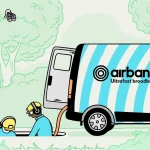Sponsored Links
UK ISPs Could Face Government Broadband TV Tax
Posted: 11th Apr, 2008 By: MarkJ
Industry regulator Ofcom, which yesterday launched the first phase of its review into public service broadcasting (here), is threatening to impose "levies" (a tax) upon UK ISP's to help resolve funding problems. The review covers all public service broadcasters, both publicly-owned (the BBC, Channel 4 and S4C), and commercial (ITV1, five and Teletext):
However, levies ("Industry funding") are just one of four options being proposed as new sources of funding; these are as follows:
UK ISPs may already be facing higher costs due to the piracy debate and data retention requirements for security services, thus they are unlikely to react positively to another financial hit in a market of tight margins and low profits. Ofcom has also posted a video of the reviews announcement:
It's worth pointing out that such levies would not only target UK broadband ISPs; hardware manufactures, other commercial content providers and broadcasters could also be hit.
Ofcom Chief Executive Ed Richards said: Public service broadcasting is at a crossroads. Viewers still want a mix of high quality UK-made content, but the traditional television model is not enough to meet all their needs. Todays proposals outline options for a securely-funded PSB future. Now is the time for a wide-ranging debate looking carefully and dispassionately at all the options.
However, levies ("Industry funding") are just one of four options being proposed as new sources of funding; these are as follows:
- Direct public funding: possible sources of funds include direct taxation; or hypothecated proceeds from spectrum auctions or spectrum charging;
- The licence fee: options include retaining the excess licence fee funding currently ring-fenced for the Digital Switchover Help Scheme and Digital UKs market costs, opening up core licence fee funding to other providers, or using BBC assets to support other providers; and
- Regulatory assets: these could include access to spectrum at below-market prices, revised advertising minutage rules, or public service broadcaster status for additional channels;
- Industry funding: a wide range of industry levies could be considered, similar to the proposals currently under consideration in France.
UK ISPs may already be facing higher costs due to the piracy debate and data retention requirements for security services, thus they are unlikely to react positively to another financial hit in a market of tight margins and low profits. Ofcom has also posted a video of the reviews announcement:
It's worth pointing out that such levies would not only target UK broadband ISPs; hardware manufactures, other commercial content providers and broadcasters could also be hit.
Search ISP News
Search ISP Listings
Search ISP Reviews
Latest UK ISP News








Cheap BIG ISPs for 100Mbps+
150,000+ Customers | View More ISPs
Cheapest ISPs for 100Mbps+
Modest Availability | View More ISPs
Latest UK ISP News
Helpful ISP Guides and Tips
Sponsored Links
The Top 15 Category Tags
- FTTP (6791)
- BT (3880)
- Politics (3069)
- Business (2764)
- Openreach (2661)
- Building Digital UK (2508)
- Mobile Broadband (2470)
- FTTC (2141)
- Statistics (2125)
- 4G (2089)
- Virgin Media (2020)
- Ofcom Regulation (1778)
- 5G (1727)
- Fibre Optic (1603)
- Wireless Internet (1593)
Sponsored
Copyright © 1999 to Present - ISPreview.co.uk - All Rights Reserved - Terms , Privacy and Cookie Policy , Links , Website Rules
































